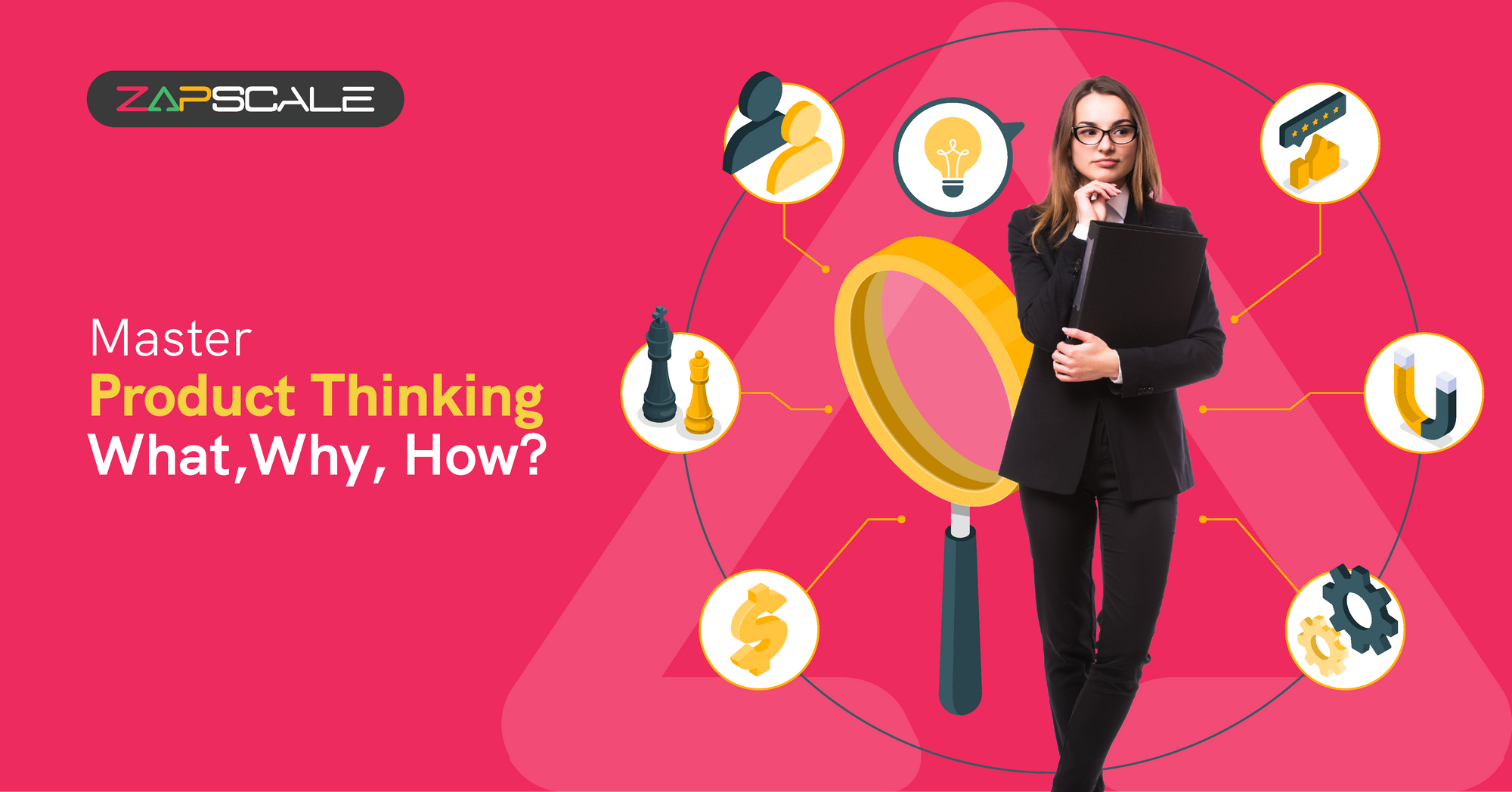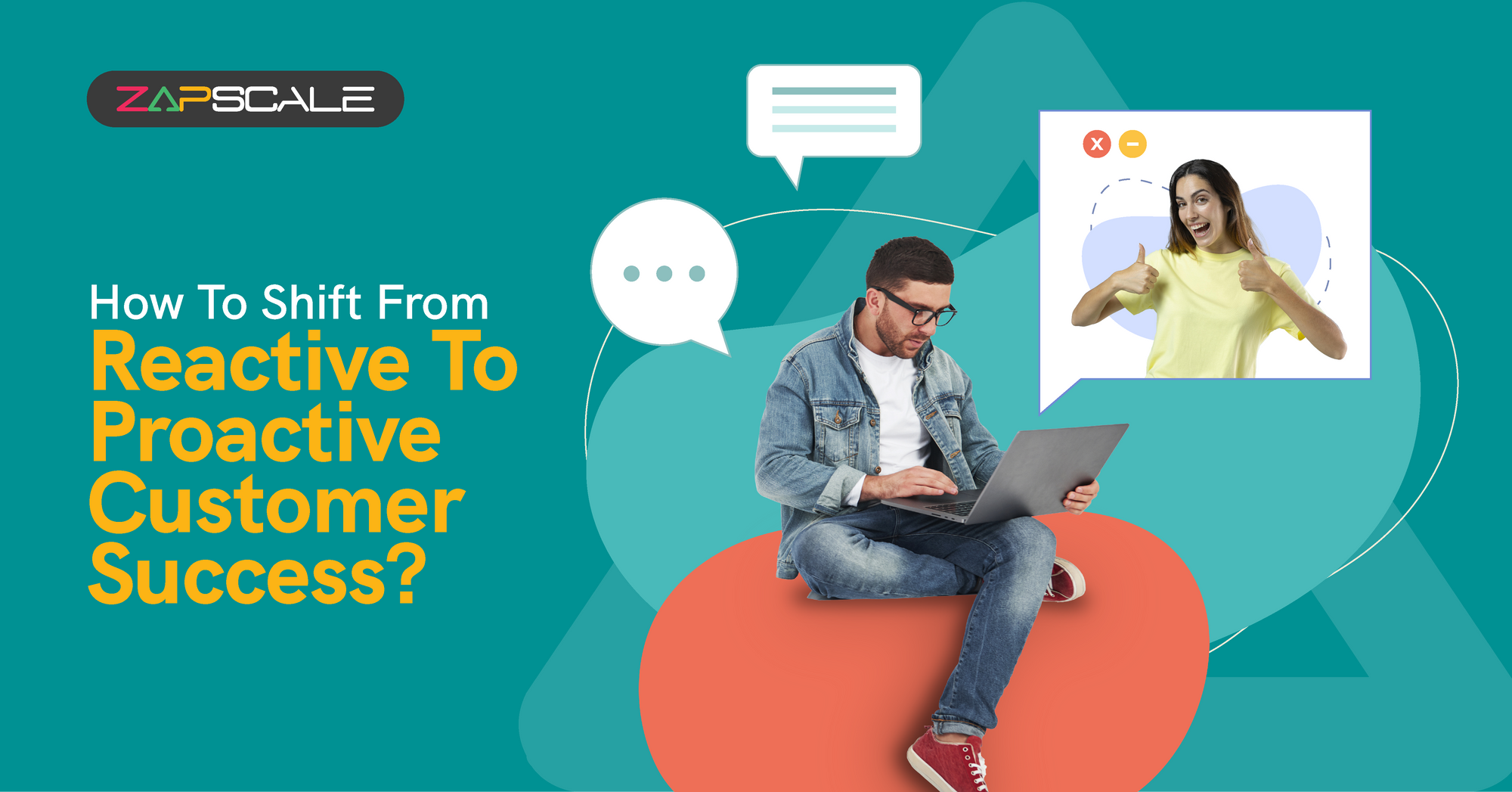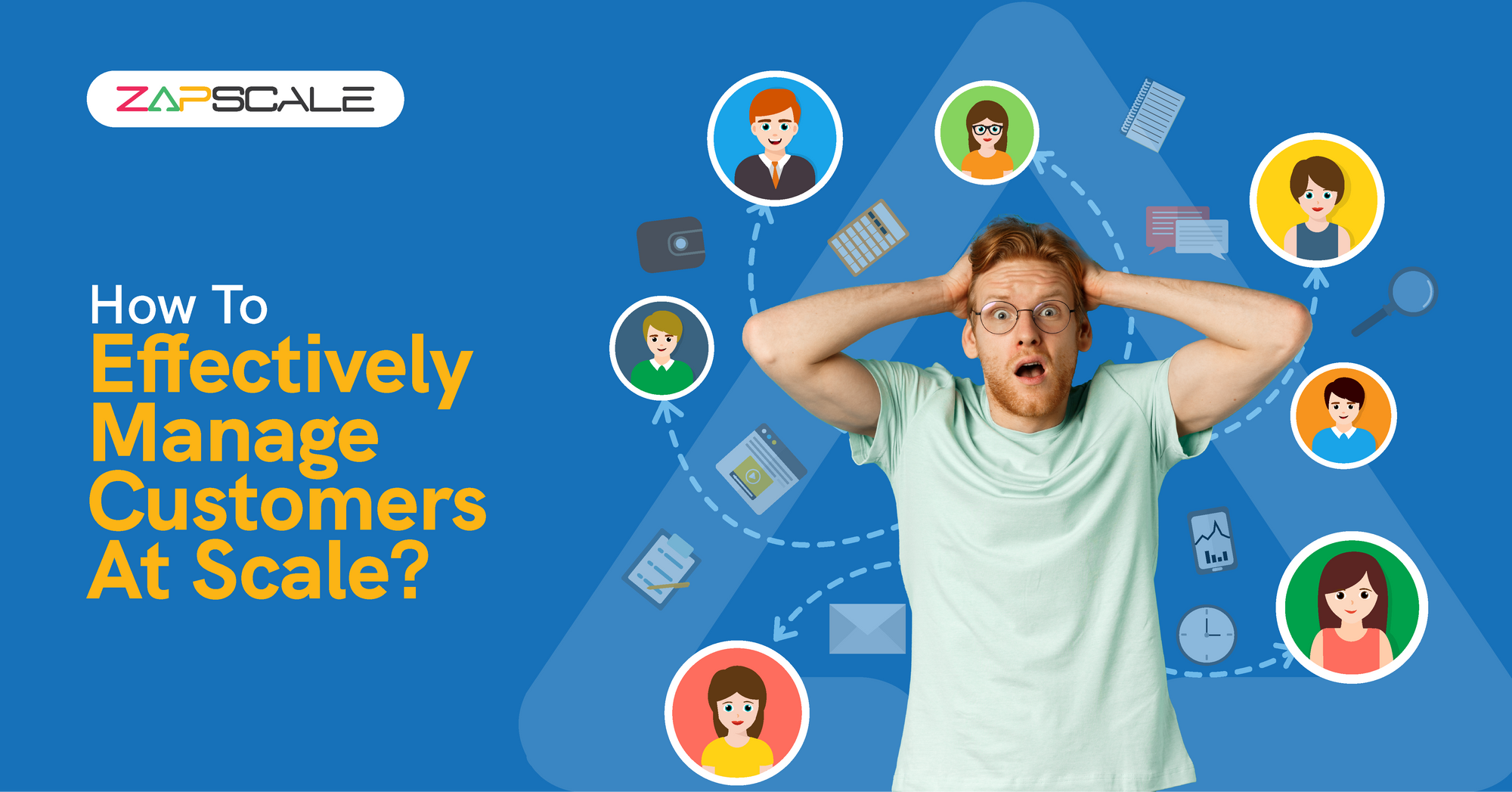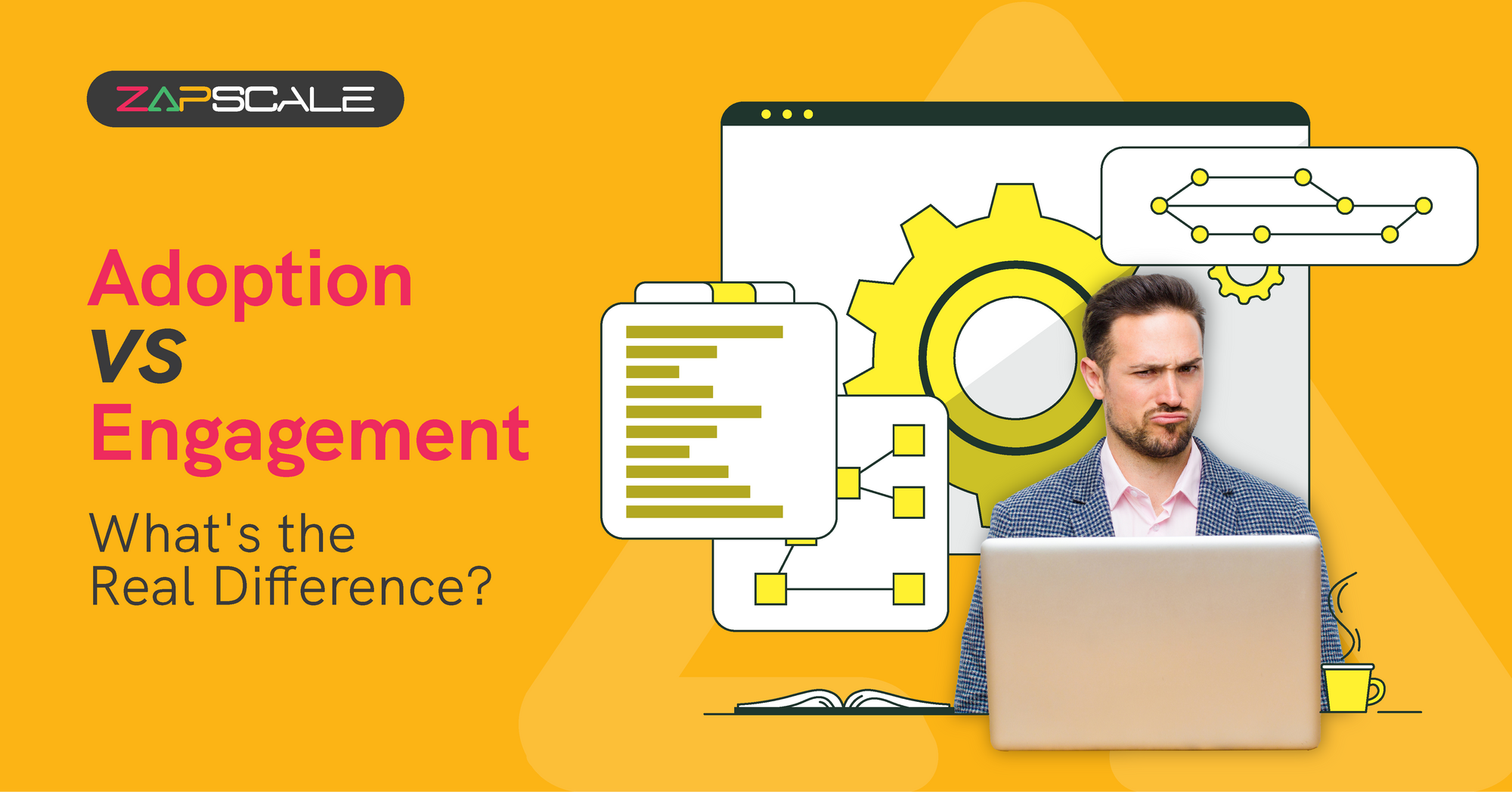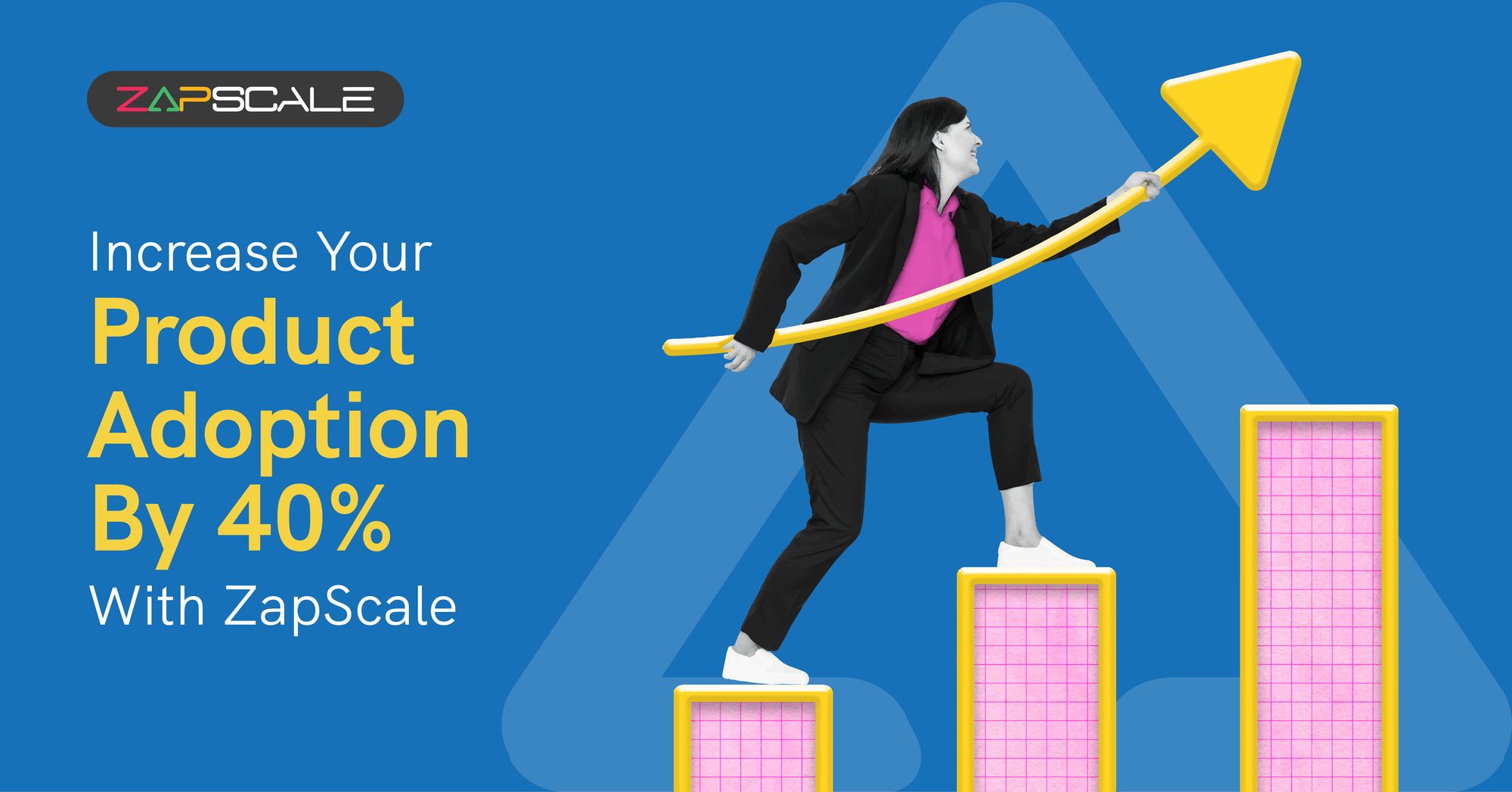CATEGORY > Customer Success Management
Should You Outsource Customer Success?
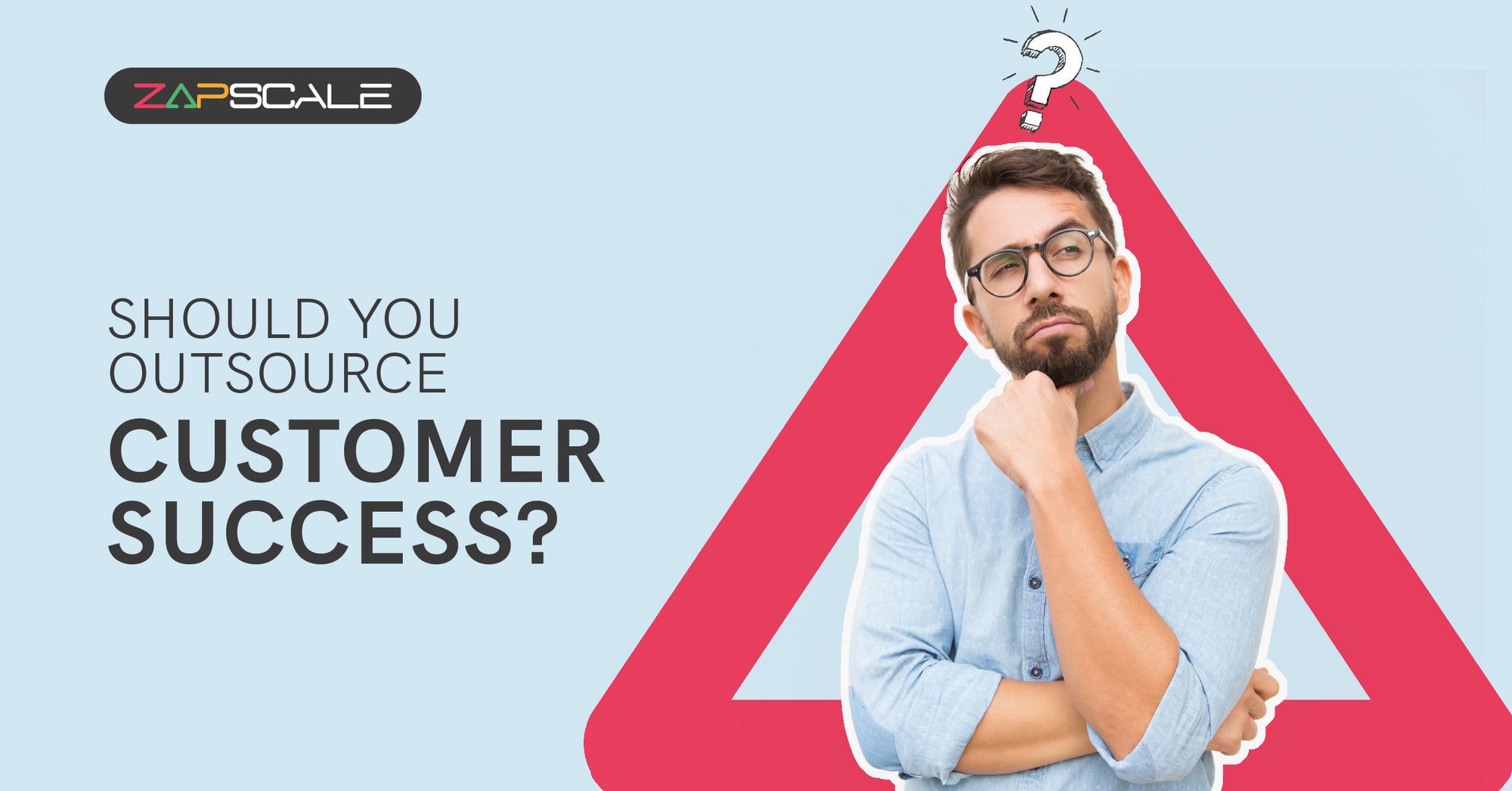
Management Consultant, author, and educator, Peter F. Drucker once said:
The question to outsource certain work items comes to the mind of every business, whether it is in the initial stage or the established stage. Businesses always think if it is worth keeping certain departments in-house or if can it be outsourced to save time and resources.
The same is true for the customer success department. Undoubtedly, Sometimes there are benefits in giving this department to some experienced external partner. But before taking this decision we should always evaluate the long-term and short-term goals and benefits.
Let us understand the pros and cons of outsourcing the customer success department but before that let’s quickly understand what is customer success and why it is important for SaaS business.
What is Customer Success?
In simple words, customer success can be defined as a series of steps a business takes to reduce its customer churn and keep the customers happy. Customer success is proactively working with your customers to help them achieve their goals.
Key benefits of Customer Success are:
1. Bottom-line growth
2. Customer retention and reduced churn
3. Improved product adoption
4. No-cost marketing
When starting up a business, you are mostly focused on acquiring new customers. Say your company has a few paying customers but your main focus is still on acquiring new customers. As you scale your business, you will find that the total Customer Lifetime Value (CLV) for you can be at least 10 times larger than what the customer gave in the first sales cycle.
Especially in a SaaS setup, customers start small, with the mindset to test the business with one subscription or two to start with. As the business grows with them, they bring in much more revenue, if their experience with you is positive overall. Thus, we need a strong customer success strategy in place from the starting years of the business itself – to nurture customer relationships right from the get-go.
Why should you outsource Customer Success?
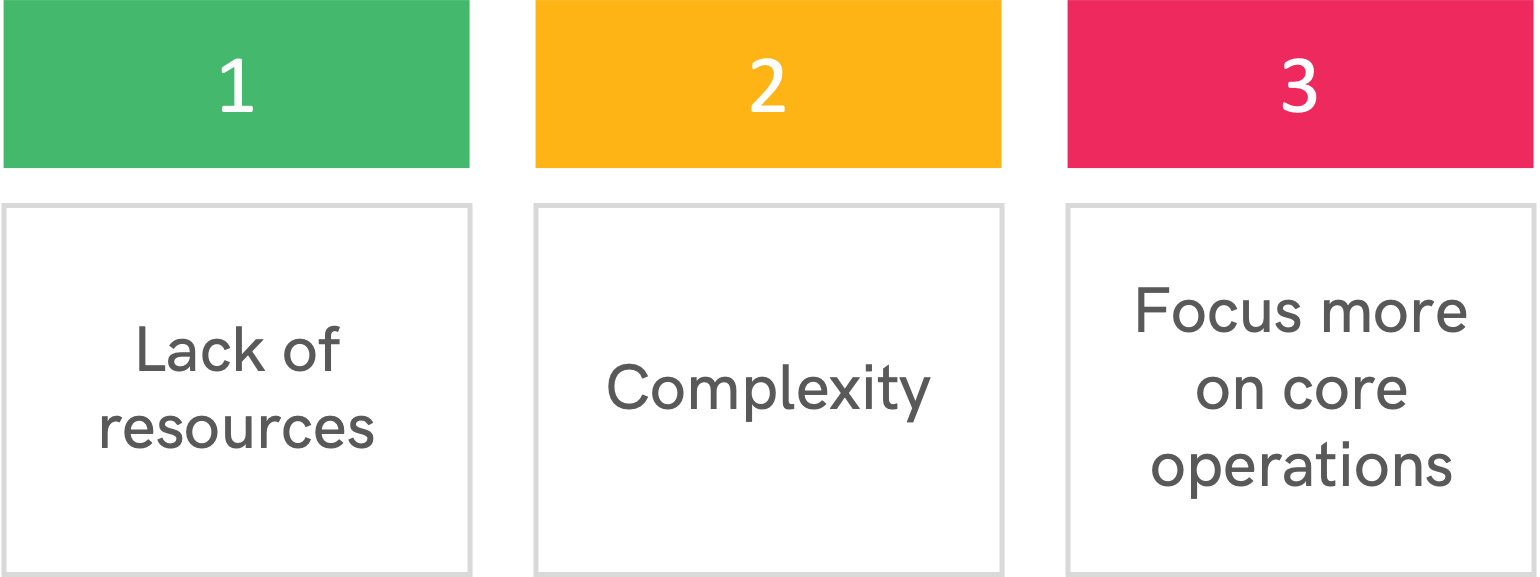
✅ Lack of resources: Do we have the skill or bandwidth needed to put the right strategies in place, when it is not even clearly known what specific skillsets to look for when hiring a new customer success team? Customer Success has many nuances to it that differentiate it from other traditional business functions. If a business is not prepared for it, outsourcing it seems like a wise choice.
✅ Complexity: CS functions demand highly complex functions like data aggregation, data integration, and automation, customer engagement, tasks and workflow management, team management, etc. Performing all of this in-house might not be a suitable choice for all businesses.
✅ Focus more on core operations: This might not be a universal scenario, but younger companies need to focus more on their core operations than venturing into the complex world of Customer Success. Having said that, until the initial customer expectations from the business have been stabilized, in-house CS operations can help start-ups to know their customer challenges better which can help them provide tailored and more-targetted solutions to their customers.
Why should you keep Customer Success in-house?
Well, as much as outsourcing seems like the better way out here, outsourcing a function as critical as customer success might even backfire. Let’s explore some of the reasons, why you should refrain from outsourcing CS functions:

✅ Customer Success is not customer support: Outsourcing customer support from call centres has long been a practice. But customer success is not limited to customer support. It is not dependent on single sales cycles and it is not limited to addressing customer grievances.
It involves having a deep understanding of your customer’s needs and preferences and providing them with the right solutions even before they address a problem. This is only possible when you have a close relationship with your customers. Can you outsource this relationship? Well, most likely not.
✅ Customer Success must be monitored closely: Customer success being as vital to business as it is, can you trust a third-party vendor to handle it instead of your own people?
Customer success is the ultimate source of recurring revenue generation, and not just a traditional function in the business. It thrives with real-time collaboration between customer-facing and non-customer-facing departments. Trusting a third-party vendor with all your customer data might not seem reasonable to a lot of organisations.
✅ CS is a profit centre: This point can be seen in conjunction with the above point. Customer success is not just customer service or support, it is essential to prevent customer churn, and maintain customer retention and revenue expansion through upselling and cross-selling.
For most businesses, more than the new ones, existing customers are the main source of their revenue stream. Thus, like operations, sales, and marketing, Customer success is also very important in maintaining a steady profit stream, thus is a profit centre, contrary to the common belief, and, outsourcing a profit centre for the business may not be a good idea.
✅ Customer Success must align with the business goal: Even when you have a well-experienced third-party customer success partner, it can be tough for them to completely align with your company’s goals and objectives. It is rare that your CS partner will manage your customers with the same passion and dedication as you would in an ideal scenario. In most cases, these partners act like complaint-takers and are not proactive.
You have to rely on their capabilities and expertise, and if they are not up to par, it will be very late until you get this feedback.
✅ Customer Success requires cross-departmental collaboration:
As we know the Customer Success team does not (and cannot) work in silos. This team collaborates with almost all the departments within an organisation. For example, the CS team helps the product team by providing them with customer feedback and further product requirements. It collaborates with the marketing team by providing them with the CSAT score, case studies, testimonials and reviews. Similarly, they help the sales team by either helping them with upsell and cross-sell trends or providing customer references for new acquisitions.
Outsourcing customer success might create hurdles in the way of developing a seamless and smooth communication channel between departments, which would be easier to do if the department is in-house.
Deciding to outsource CS operations or not is subjective to every business, but there’s one important thing to note – at the time when your organisation is young and you only have a handful of customers, outsourcing CS might seem like a better choice, but eventually, as the business grows and your customer portfolio broadens, you would most likely need to bring CS operations in-house to realize its full potential.
Building strategic relationships with the customers, seamless cross-functional collaborations, and CS strategy alignment with the core business values can all be done better and more effectively with an in-house CS function.
FAQs
1. What are the main benefits of outsourcing customer success?
Outsourcing customer success can provide access to specialized expertise, reduce overhead costs, and allow your internal team to focus on core business functions. It can also offer scalability and flexibility, as external providers can quickly adapt to changing needs and manage varying customer volumes rapidly.
2. What are the potential risks of outsourcing customer success?
Outsourcing customer success may lead to challenges in maintaining consistent service quality and alignment with your company’s values and culture. There could be potential issues with communication and integration between your team and the external provider, as well as concerns about security and confidentiality.
3. How do I choose the right partner for outsourcing customer success?
When selecting a partner, consider their track record in customer success, industry experience, and ability to align with your company’s goal and culture. Look for providers with robust training and onboarding processes, transparent communication practices, and a commitment to deliver high-quality service. Additionally, ensure they offer clear metrics for performance and reporting.
ABOUT THE AUTHOR
Popular from Customer Success Management
Quality Content,
Straight To Your Inbox!
Subscribe for the latest blogs, podcasts, webinars, and events!

Write a Blog
If you have experience in CS and
a flair for writing, we’d love to
feature you.
Write to us on
hello@zapscale.com
